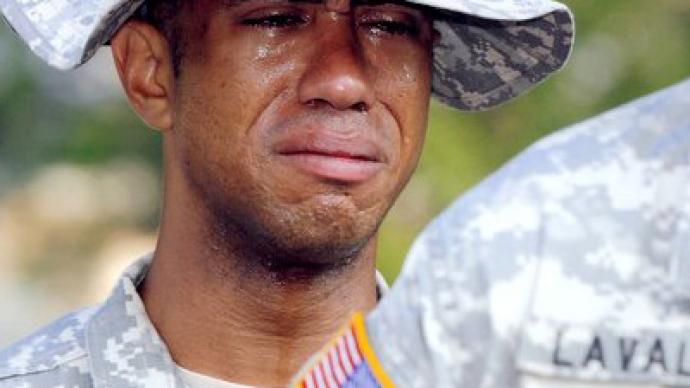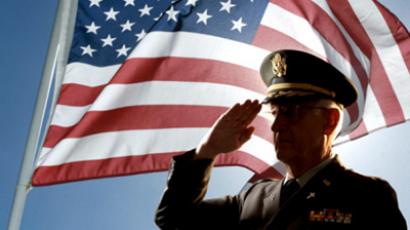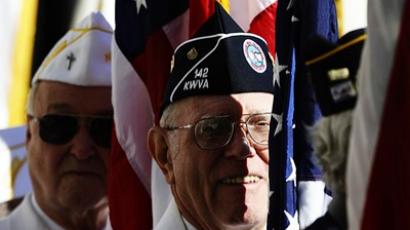US veterans left to fight post-war demons alone

American soldiers who return from Iraq are often left to adjust to life after service all by themselves, struggling to make sense of and justify the deaths caused by the war. The US government is often accused of failing to help them.
RT met one former member of the military whose account of her grueling endurance sheds light on the harsh life of a returning soldier.Jessica Goodell, a 28-year-old ex-marine, is an American who abandoned her weapon for written words, to tell a story she says is kept censored from US citizens. She is the author of Shade it Black: Death and After in Iraq.“Even though people know it affects us, I don’t think they understand the weight and the toll that it takes on us. Seeing the effects of war, the literal effects, the dead bodies, the remains, the flesh, I couldn’t figure out what are we doing. Why are we doing this? Was this person’s life worth this,” says Jessica. Jessica Goodell’s memoir, Shade it Black: Death and After in Iraq, details a traumatic and human account of war.In 2004, Goodell spent eight months in Iraq, collecting, cataloging, bagging and boxing the bodies of dead marines at the Mortuary Affairs unit.This is an experience no US president who declared war has ever endured.“If it was in result of an explosion, there could be several body pieces. Sometimes that would require us to crawl under trucks or into trucks or scoop flesh so you can get it back to the families,” recalls Goodell. Goodell pieced fallen soldiers back together after receiving body bags filled with limbs. On one occasion, a bag she processed was carrying only the heads of her comrades.“We didn’t know what was in the bag when we had gotten that particular body bag. When we unzipped it…As soon as you pull back the flap you immediately look away. It’s difficult to look at, but you have to put them in the respective body bags and send them to the respective family,” says Goodell. Nearly 4,500 US soldiers have returned from Iraq in caskets. More than 1,500 have flown in from America’s other war in Afghanistan.For the millions who do make it home alive, many, like Goodell, are tormented by memories, post traumatic stress disorder, depression and substance abuse.“I couldn’t leave my apartment,” confesses Goodell. “I didn’t have friends. I didn’t talk to anybody. You can’t deal with it. I suffered from flashbacks and nightmares, and I couldn’t process it. I couldn’t make sense of it.”More than six years later, Goodell says she still searches for reasons to justify the damage and death caused by the US war in Iraq. As a marine, she did what she was told. As a civilian, she questions why US leaders glorify soldiers as heroes, but neglect to speak about the consequences of their service.“I don’t know that the government respects veterans because if they respected us I don’t think they’d send us to these places to carry out what they’re asking of us. So I don’t think that respect is there from the get go,” says Goodell. Declaring war is the prerogative of politicians. Over the decades, US wars have resulted in a reported 23 million American veterans, many of whom have been left struggling to adjust to life after the battle. For them it is a shift from fighting enemies to fighting demons.














